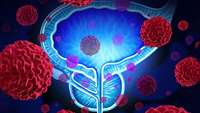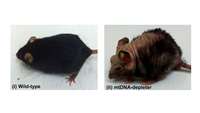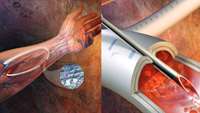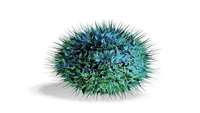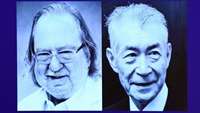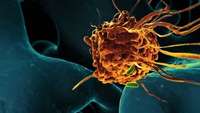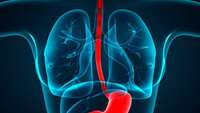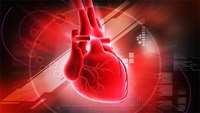STEM CELLS BREAKTHROUGH IN PROSTRATE CANCER TREATMENT
In what could be a major breakthrough in fighting prostate cancer, a researcher from Gitam Institute of Technology (GIT) has found that a drug used for treating coronary heart disease and stroke can control the progression of this form of cancer.
Scientists reverse aging-associated skin wrinkles and hair loss in a mouse model
Keshav Singh, Ph.D., and colleagues have done just that, in a mouse model developed at the University of Alabama at Birmingham. When a mutation leading to mitochondrial dysfunction is induced, the mouse develops wrinkled skin and extensive, visible hair loss in a matter of weeks.
How do muscles know what time it is?
Circadian clocks are present in all cells of the body, and have a pervasive influence on all aspects of human physiology. This is because they regulate homeostasis by anticipating rhythmic changes in behavior and nutritional state, and by compartmentalizing incompatible metabolic pathways within precise temporal windows.
Biodegradable and elastomeric vascular grafts enable vascular remodeling
Implanted grafts, including vascular substitutes, inevitably experience remodeling by host cells. The design of grafts capable of promoting constructive remodeling remains a challenge within regenerative medicine.
CAR-NK: Safer, Cheaper and Better Anti-cancer Drug
At the end of June this year, the CAR-NK cell, a new immune cell, was reported as the third CAR cell to fight against cancer after CAR-T cells and CAR-macrophage cells.
Cancer immunotherapy wins the 2018 medicine Nobel Prize
James P. Allison of MD Anderson Cancer Center in Houston and Tasuku Honjo of Kyoto University in Japan have won the Nobel Prize in physiology or medicine for advances in harnessing the immune system to fight cancer.
Single transplantation of therapeutic macrophages improves rare lung disease in mice
Hereditary pulmonary alveolar proteinosis (herPAP) is a rare disease characterized by the slow build-up of lipo-protein material in the lungs due to the failure of highly specialized cells called macrophages, which usually eat away this material from the pulmonary air-space.
Scientists create human esophagus in stem cell first
The esophagus is the muscular tube that moves the food and liquids we ingest from our throats all the way to our stomachs.
Gene editing technology may improve accuracy of predicting individuals heart disease risk
Scientists may now be able to predict whether carrying a specific genetic variant increases a persons risk for disease using gene editing and stem cell technologies, according to new research in the American Heart Associations journal Circulation.
STEM CELL RESEARCH HELPS TO IDENTIFY ORIGINS OF SCHIZOPHRENIA
New University at Buffalo research demonstrates how defects in an important neurological pathway in early development may be responsible for the onset of schizophrenia later in life.


